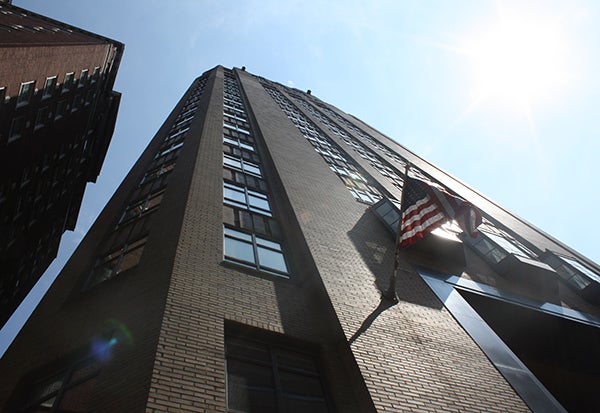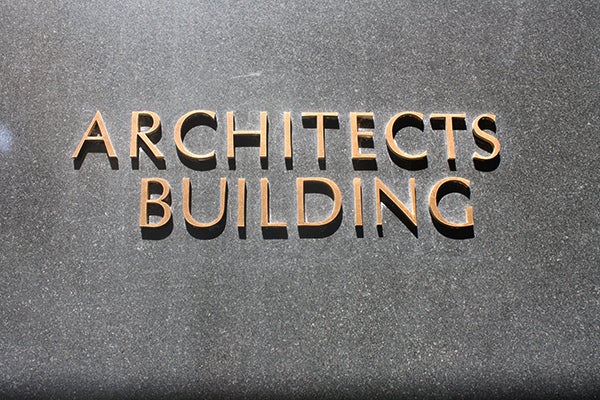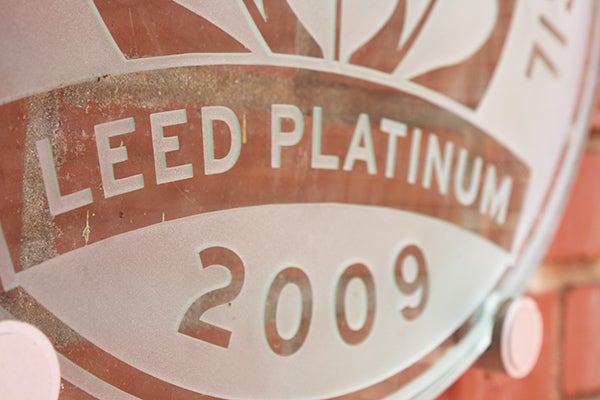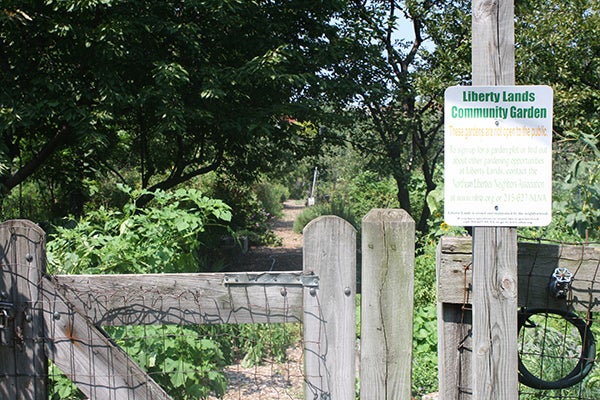The Goals of Zoning Reform, Part II: Promoting sustainable development
Last week, we posted the first in a series of stories holding the draft zoning code up against its stated purposes. Today, that series continues by looking at Purpose 2(a): Promoting “sustainable and environmentally responsible practices” by “Supporting the City’s sustainability goals to reduce vehicle miles traveled, encourage renewable energy and energy conservation, allow urban food production, promote walking and community health, and allow the City to operate more efficiently.”
The City’s goals are explained in a document released in 2009 called Greenworks Philadelphia, and they fall into five alliterative categories: energy, environment, equity, economy, and engagement.
Specific Greenworks targets include decreases in energy consumption, greenhouse gas emissions, and vehicle miles traveled, improvements in air and water quality, and increases in alternative energy use and citywide access to fresh, healthy foods.
Though the document wasn’t released until after zoning reform was underway, the Zoning Code Commission was able to fold the Greenworks goals into the draft code.
“From our vantage point, there’s been fairly strong support from across the commission,” said Katherine Gajewski, director of the Mayor’s Office of Sustainability, an office created under the Nutter administration. Gajewski said that zoning reform is one way in which her office’s “fairly high-level goal areas” are being implemented in a practical way. She said that the draft code is particularly clear about sustainability when it comes to cutting down on energy consumption.
One way the code helps encourage reduced energy use is through Floor Area Bonuses, which are explained in §14-702 of the draft. The bonuses are explicitly intended “to encourage certain types of development and the creation of specific amenities in the public interest.” The code awards density bonuses to developers who fund public art, make transit improvements, or build “green” buildings.
A building’s “green-ness” is evaluated using the LEED Certification process developed by the U.S. Green Building Council. (See our Zoning Lexicon for a brief explanation of LEED.) The draft code awards bonuses to buildings that are LEED Certified at either the Gold or Platinum levels. So, for example, a building that’s either constructed or retrofitted to be certified LEED Platinum can be awarded up to 400% extra gross floor area. The maximum allowable density bonus varies by district and level of certification.
At any rate, the new zoning code incentivizes energy-efficient development. And Katherine Gajewski thinks that is one of its greatest aspects.
“If Philadelphia can figure out how to reduce our energy use and impact,” Gajewski said, “we’re going to set ourselves up to be not only way more efficient, but way more competitive.”
In terms of reducing vehicle travel, one of the code’s most concrete sustainability initiatives is related to Transit Oriented Development (TOD), which we’ll deal with in a separate story.
But the ZCC also created a use category for urban agriculture, which should theoretically improve access to fresh food for all Philadelphians. Uses in that category include community-supported farms, community gardens, nurseries and greenhouses, and, yes, animal husbandry. These uses are subject to various regulations—including a requirement of fences for areas where farm animals are permitted—but the fact that the zoning code even recognizes urban agriculture is a step toward encouraging its development.
“A lot of people wanted to advance those kinds of projects, and needed clarity,” Gajewski said. “Having a code that addresses those issues specifically is really helpful,” she added.
Brian Howard is the editor-in-chief of Grid magazine, a Philadelphia publication that advocates an environmentally responsible lifestyle. He says the City’s goals are “smart,” and an important factor in the effort to take care of the environment. “We definitely think policy is part of the solution,” Howard said. As for zoning reform specifically, Howard said he was impressed with how the ZCC was able to juggle various interests and still take concrete steps relating to sustainability.
“They’re doing a pretty intricate balancing act,” Howard said.
And that’s a sentiment that seems to be shared throughout the sustainability community. Last week, FixItPhilly.org, an organization that advocates for sustainable policies, among other things, released a document naming eight ways in which the “New Zoning Code Will Make Philadelphia a Greener, More Sustainable City.”
Patrick Starr, senior vice president with the Pennsylvania Environmental Council, said he believes the new code will give a boost to responsible development.
“I think we’ll get a much better environmental outcome by passing this new code,” Starr said. He pointed out that any policy that promotes development in Philadelphia—or any densely populated area—is automatically good for the environment. Encouraging density, the thinking goes, reduces sprawl.
“The city is where we have the infrastructure,” Starr said, adding that enacting the draft will be “a huge step forward to making development more transparent and more appropriate in the City of Philadelphia.” As to whether the code goes as far as his organization hoped in benefiting the environment, Starr said it was as much as his and other groups could rightly expect.
“I don’t think we got everything we wanted, but that’s the nature of these things,” Starr said.
Katherine Gajewski said that the only aspects of zoning reform that have fallen short of her hopes are related to enforcement. “Overall, certainly in some areas, the code could be more aggressive in requiring that certain standards be met,” Gajewksi said.
Both Gajewski and Brian Howard pointed out that there has been some opposition among members of City Council to agricultural uses in certain districts. So it remains to be seen if urban farming will become a political issue when Council opens hearings on the draft in September.
But up to this point, all seem to agree that zoning reform has been among the more transparent and democratic government processes to take place in Philadelphia. And folks who advocate for sustainability in development as well as City government seem pleased by the changes the commission has made to the code.
“Our office is happy with where the draft landed,” said Gajewski, “and there was a great conversation along the way.”
Next Up: PlanPhilly explores how the draft code helps to restore and conserve Philadelphia’s natural and historic resources.
Contact the reporter at jaredbrey@gmail.com
WHYY is your source for fact-based, in-depth journalism and information. As a nonprofit organization, we rely on financial support from readers like you. Please give today.









